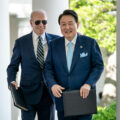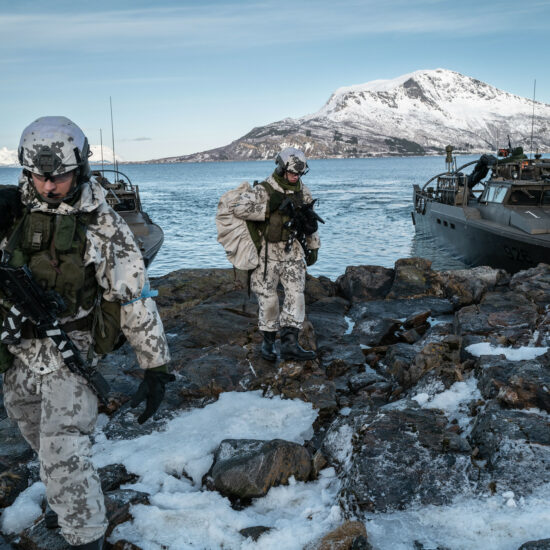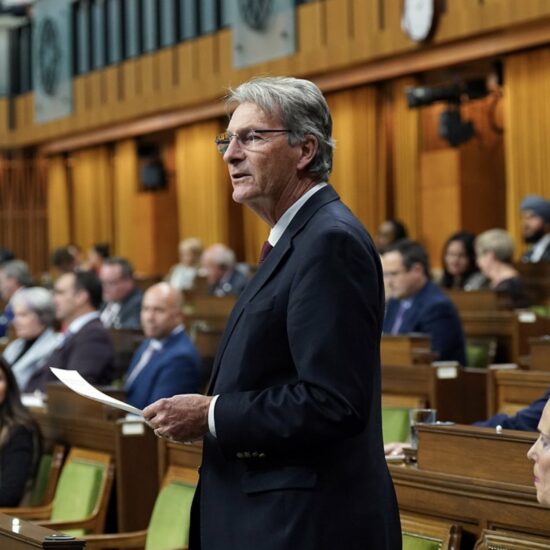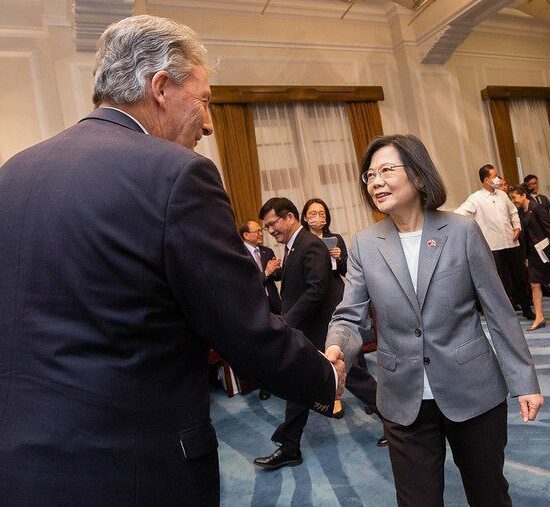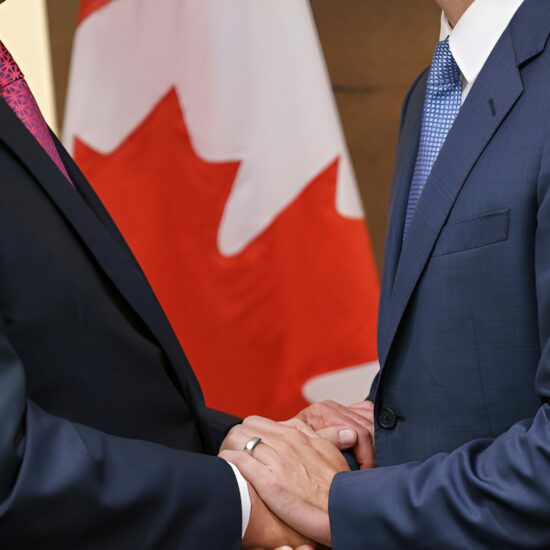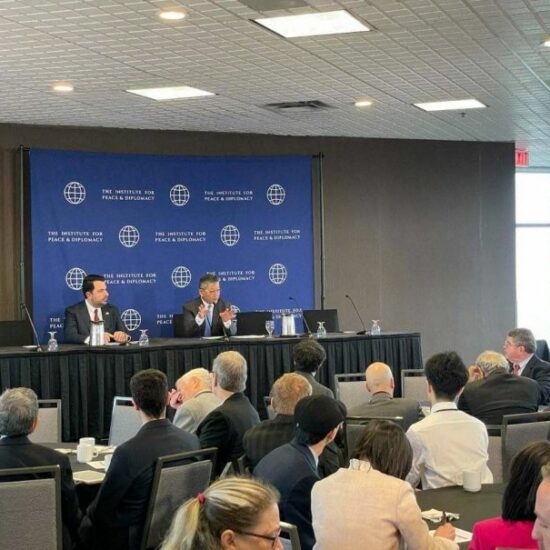
Image credit: Office of the Prime Minister
17 juin 2020 : pour la seconde fois en 10 ans, le Canada se voyait refuser un siège de membre non-permanent au Conseil de sécurité des Nations unies. Quelle rebuffade pour un pays jadis reconnu comme le gendarme honnête et désintéressé de l’ordre international et qui fut à l’origine d’une des plus belles initiatives globales du 20ème siècle, à savoir les Casques bleus ! Une gifle infligée par la communauté internationale qui était par ailleurs historique puisqu’elle marquait la première fois qu’un pays échouait de manière consécutive à se faire élire à ce club sélect après y avoir siégé à 6 reprises depuis sa création en 1945. Non, contrairement à ce qu’avait promis Justin Trudeau en 2015, le Canada n’était pas de retour comme acteur de premier plan dans le monde des relations internationales, mais continuait plutôt à s’enfoncer dans son isolement global. La question à laquelle il importe aujourd’hui de répondre consiste à savoir pourquoi le monde ne semble plus avoir besoin du Canada.
Évidemment, des considérations stratégiques contribuent à expliquer ces échecs. Lors de nos deux tentatives infructueuses de 2010 et de 2020, force est d’admettre que la stratégie canadienne fut pour le moins bancale. Alors que les concurrents du Canada avaient planifié leur candidature de longue date en ne négligeant aucun détail, Ottawa a plutôt fait le choix d’une campagne de dernière minute et en refusant de déployer les moyens nécessaires au succès d’une telle initiative, plus précisément en débloquant des sommes conséquentes afin de (pour utiliser un euphémisme que tout le monde comprendra) « prendre en compte les intérêts particuliers des votants ». En fait, le Canada fait pâle figure à cet égard en ne consacrant que le quart d’un pour cent de son PIB à l’aide internationale, alors qu’un de ses concurrents de 2020—la Norvège—consacre pour sa part un pour cent de son PIB. Malheureusement pour le Canada, à ce jeu, des sourires et des poignées de main ne suffisent pas à aller chercher des votes auprès des pays du bloc africain—un ensemble régional représentant 54 votes—qui demeurent les plus grands bénéficiaires de l’aide internationale.
Ni Justin Trudeau ni ses ministres des Affaires étrangères n’y ont effectué de visite officielle entre 2015 et 2019 : un manque d’intérêt qui s’était déjà traduit auparavant sous les administrations Martin et Harper qui avaient même fermé les ambassades en Guinée et au Gabon.
Outre cette dynamique budgétaire qui a contribué à mettre du plomb dans l’aile à la candidature canadienne, il est également clair que le manque d’intérêt pour l’Afrique s’est également manifesté autrement. Par exemple, ni Justin Trudeau ni ses ministres des Affaires étrangères n’y ont effectué de visite officielle entre 2015 et 2019 : un manque d’intérêt qui s’était déjà traduit auparavant sous les administrations Martin et Harper qui avaient même fermé les ambassades en Guinée et au Gabon. L’inclusion du Canada dans un groupe de pays réunissant également les états européens est également un facteur qui nuit à la capacité du pays de se faire élire sur le Conseil de sécurité, dans la mesure où les seconds ont tendance à faire front commun avec les candidatures qui proviennent du vieux continent.
Je suis toutefois d’avis que ces raisons sont l’arbre qui cache une vaste forêt, à savoir celle de l’effacement du Canada à l’échelle internationale en raison du déclin irréversible de l’ordre libéral de l’après-Guerre froide auquel ont adhéré les différents gouvernements allant de Jean Chrétien à Justin Trudeau. De 1991 à aujourd’hui, le Canada a en effet joué un rôle éminemment actif de promoteur de certaines valeurs associées au libéralisme. Si à l’époque de Jean Chrétien le centre de gravité était articulé autour du désir de lutter contre les risques de la mort violente pour les civils à travers le monde (qui fut le résultat des génocides ou risques de massacres à grande échelle des années 1990 et qui donna ultimement naissance au concept de la responsabilité de protéger), il s’est déplacé sous l’administration Harper autour de la volonté de lutter contre les régimes oppressifs et liberticides (ce qui fut largement la conséquence des croyances du Premier ministre conservateur) avant de se refocaliser à partir de 2015 autour de l’idéal de l’émancipation des personnes et de la promotion de leur identité (une croyance typiquement associée au Parti libéral et à son chef qui voit dans le Canada un exemple de pays post-national devant servir de modèle au reste du monde).
Si la fin de la Guerre froide a été en mesure de générer une dynamique globale qui a su intégrer dans sa logique des États au passé illibéral, cela n’est plus le cas aujourd’hui.
Or, si la fin de la Guerre froide a été en mesure de générer une dynamique globale qui a su intégrer dans sa logique des États au passé illibéral, cela n’est plus le cas aujourd’hui. Au contraire, cette dynamique a changé au cours des dix ou quinze dernières années à tel point qu’un fossé s’est créé entre deux mondes, un peu à l’instar de l’après-Seconde guerre mondiale où un rideau de fer s’était dressé « de Stettin sur la Baltique à Trieste sur l’Adriatique ».
Ce changement de paradigme a eu des conséquences désastreuses sur le Canada en tant qu’acteur international. En effet, en étant l’un des plus ardents défenseurs des principes sous-jacents à l’ordre mondial post-1991, le Canada est devenu l’un des fers de lance d’un bloc idéologique qui est aujourd’hui en forte opposition avec des puissances en émergence ou revanchistes, plus particulièrement la Russie et la Chine, qui n’ont désormais aucune hésitation à tenir tête à Ottawa en posant des gestes de provocation à son égard comme jamais auparavant. Dans ce nouvel ordre international en émergence, les actions éminemment proactives des deux dernières administrations fédérales contre les régimes autoritaires et ceux en faveur des droits des différentes minorités ont amené les états illibéraux visés par celles-ci à voir dans le Canada un acteur néo-colonialiste aux tendances moralisatrices. Avec l’éclatement du paradigme de la convergence libérale et la montée en puissance du Sud—un bloc qui sera économiquement aussi puissant (sinon plus) que le bloc occidental—les silences de jadis disparaissent et font place à une défiance davantage affirmée dont le Canada est aujourd’hui victime. L’échec pour obtenir un siège au sein du Conseil de sécurité constitue à cet égard un exemple concret des conséquences des choix faits par le Canada.
La stratégie mise en place depuis 1991 a donc ultimement mené le Canada à heurter les valeurs et intérêts des autres pays avec le prix que l’on connaît aujourd’hui. Si les conséquences de cette friction causée par la défense de positions dogmatiques peuvent être amoindries par le « hard power », cela dépend en retour d’une puissance coercitive réelle, ce que le Canada n’a évidemment pas à sa disposition. Or, une absence de « soft power » doublée d’un « hard power » inexistant fait en sorte qu’un État est inévitablement voué à se marginaliser et à avoir une insignifiance et une impuissance globales. C’est aujourd’hui clairement le cas avec le Canada qui ne possède plus les moyens de ses ambitions associées à la mission civilisatrice qu’il s’est lui-même fixée.
Une absence de « soft power » doublée d’un « hard power » inexistant fait en sorte qu’un État est inévitablement voué à se marginaliser et à avoir une insignifiance et une impuissance globales. C’est aujourd’hui clairement le cas avec le Canada qui ne possède plus les moyens de ses ambitions associées à la mission civilisatrice qu’il s’est lui-même fixée.
En somme, les choix effectués au cours des trente dernières années ont fait en sorte de placer le Canada dans une situation qui n’offre pas de sorties honorables. Les perspectives qui s’offrent à lui sont malheureusement manichéens : soit perdurer dans la voie tracée depuis la fin de la Guerre froide, avec comme conséquence le maintien et l’accroissement de sa marginalisation; ou une rupture avec celle-ci avec pour risque de nier les valeurs et principes qui nous définissent et qui ont été au cœur du positionnement canadien à l’échelle internationale. À une époque de réouverture de l’Histoire, qui s’est temporairement arrêtée en 1991, voilà les défis qui attendent les décideurs politique de demain à qui l’on ne peut souhaiter que beaucoup de courage et de résilience, puisque la tâche qui les attend est dantesque. Une chose est toutefois certaine : les orientations actuelles du Canada en matière de politique étrangère mènent clairement le pays dans un cul-de-sac et aucun parti fédéral ne semble avoir pris acte de la nouvelle dynamique globale qui se déploie sous nos yeux. Ce manque de perspective est pour le moins inquiétant de la part de ceux et celles qui nous dirigent.
Jean-François Caron (@jfrcaron) est Professeur de science politique à l’Université Nazarbayev (Kazakhstan) et Senior Fellow à l’Institut pour la Paix et la Diplomatie.

